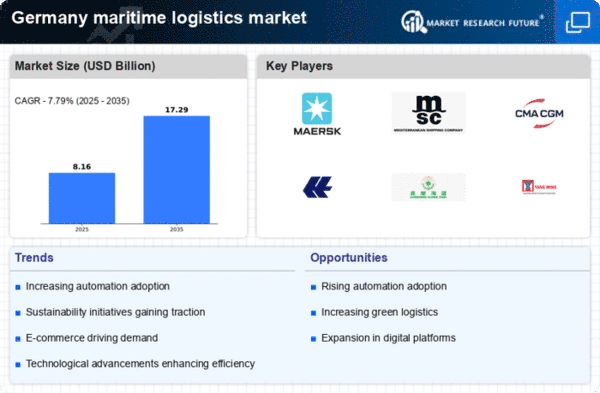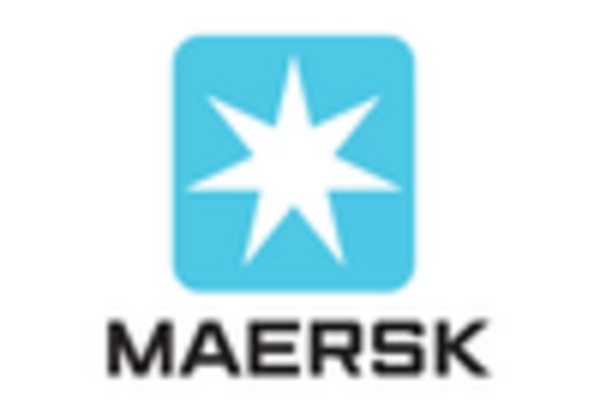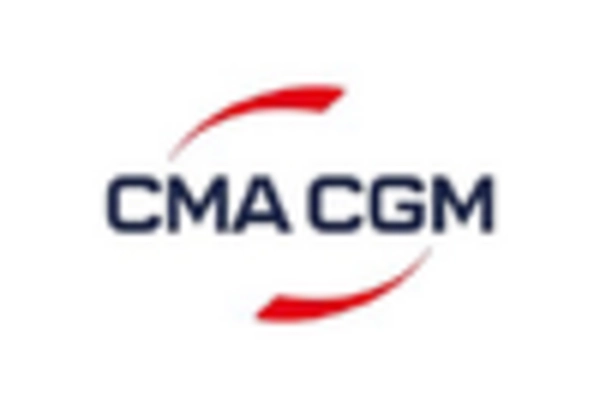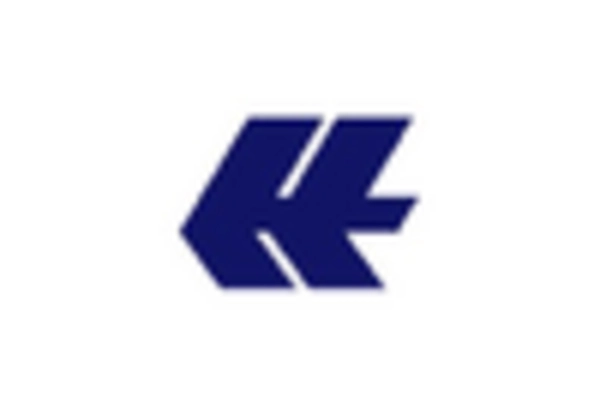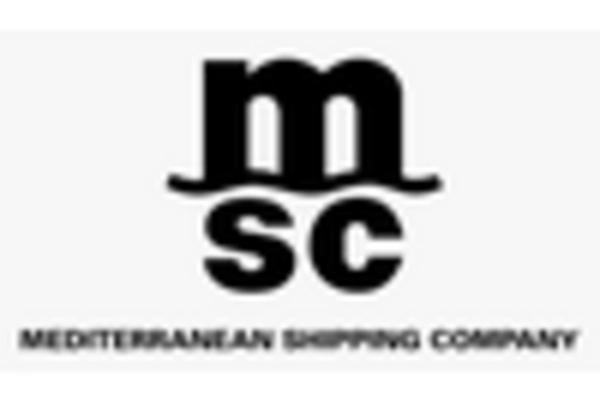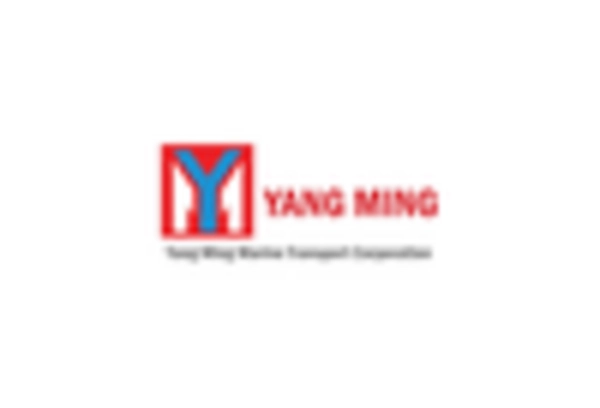Growing E-commerce Demand
The rise of e-commerce is reshaping the maritime logistics-services market in Germany. As online shopping continues to gain traction, the demand for efficient shipping and logistics solutions is escalating. In 2025, e-commerce sales in Germany are projected to reach approximately €100 billion, driving the need for robust maritime logistics services to facilitate the movement of goods. This trend compels logistics providers to enhance their capabilities, including faster delivery times and improved tracking systems. Consequently, companies that adapt to these demands are likely to capture a larger market share within the maritime logistics-services market.
Increased Trade Activities
The maritime logistics market in Germany is benefiting from a rise in trade activities, particularly with countries in Asia and North America. The expansion of trade agreements and partnerships has led to a surge in import and export volumes. In 2025, Germany's exports are expected to exceed €1 trillion, necessitating efficient logistics solutions to manage the growing cargo flow. This increase in trade activities presents opportunities for logistics providers to expand their services and improve their operational frameworks. As a result, companies that can effectively navigate these trade dynamics are likely to thrive in the maritime logistics-services market.
Investment in Port Infrastructure
Investment in port infrastructure is a critical driver for the maritime logistics-services market in Germany. The government and private sector are channeling funds into upgrading port facilities to accommodate larger vessels and improve operational efficiency. For instance, the expansion of the Port of Hamburg is expected to enhance its capacity by 30% by 2026. Such investments not only facilitate smoother logistics operations but also attract more shipping lines, thereby increasing competition and service options within the maritime logistics-services market. Enhanced infrastructure is likely to lead to reduced turnaround times and lower shipping costs, benefiting all stakeholders involved.
Regulatory Compliance and Standards
Stringent regulatory compliance and standards significantly influence the maritime logistics market in Germany. The European Union has implemented various regulations aimed at enhancing safety and environmental protection in maritime operations. Compliance with these regulations often requires substantial investment in technology and training, which can be a barrier for smaller operators. However, adherence to these standards can enhance the reputation of companies within the maritime logistics-services market, potentially leading to increased customer trust and loyalty. Moreover, companies that proactively comply with regulations may benefit from reduced penalties and improved operational efficiencies.
Technological Advancements in Shipping
Technological advancements are transforming the maritime logistics market in Germany. Innovations such as automation, artificial intelligence, and blockchain are enhancing operational efficiency and transparency. For instance, the integration of AI in route optimization can reduce fuel consumption by up to 15%, thereby lowering operational costs. Furthermore, the adoption of blockchain technology is streamlining documentation processes, which can potentially decrease administrative costs by 20%. These advancements not only improve service delivery but also attract investments into the maritime logistics-services market, as companies seek to leverage technology for competitive advantage.


